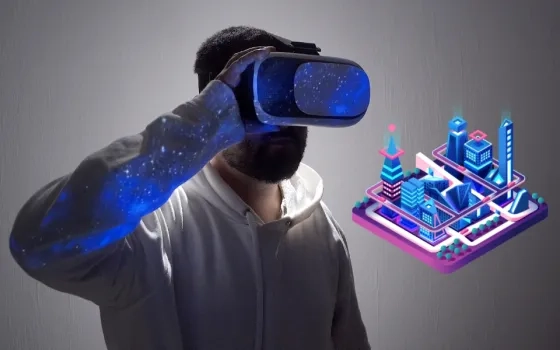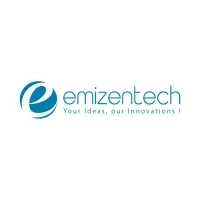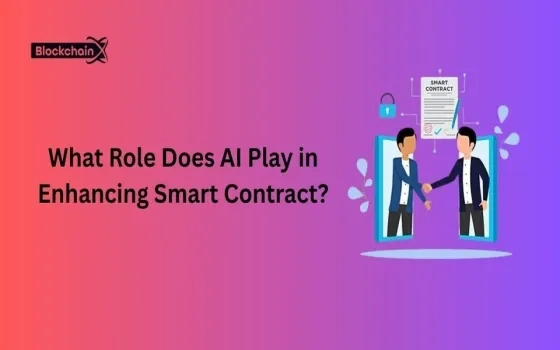AI, IoT, and Metaverse are technologies having the potential to create a highly immersive and interconnected digital world that offers unrivaled opportunities for innovation, collaboration, and communication. But what makes these technologies distinct is the power to automate the entire infrastructure into a profound and human-oriented solution. It makes the process more competent and better for all, which leads to a greater understanding of all industrial processes and gives an experience of a whole new world.
But do you know what precisely these three can do and how they work? Don't worry; let's jump into the uncomplicated simplification of the technologies!
AI fetches the vast amount of data the IoT generates to make sense in real-time, enabling more efficient automation and thoughtful decision-making. AI in the metaverse is used to create more engaging and realistic environments and power intelligent virtual assistants and other virtual agents that can interact with users.
The IoT, in turn, can provide the infrastructure for transmitting and collecting the data from different devices like sensors, creating a seamless flow of information between the digital and physical worlds. The metaverse can provide a very interactive and innovative way to interact with digital objects and surroundings for the users.
The convergence of these technologies can create an influential ecosystem enabling a new form of creativity, communication, and collaboration. For instance, conferences and virtual meetings can be hosted in an immersive and highly realistic environment.
The Interconnection Between Metaverse, IoT, and AI
1. Internet of Things in The Metaverse
IoT is a network of physical things connected with software, sensors, and other technologies to exchange and connect data with other devices and systems over the internet. It has the power to transform communications, automation, global IT support systems, and business processes virtually in every industry vertical. On the other hand, the metaverse is the virtual world that can change the individual's surrounding environment to give an ultimate experience with the help of technology. When these technologies converge, it becomes a bridge between the virtual and real world to interact and communicate. In simple words, the data collected with the help of thousands of things like sensors, cameras, and other tech devices can be extracted and infused into the virtual world.
2. Artificial Intelligence of Things in The Metaverse
The metaverse concept is rapidly growing and gaining immense popularity, and AI is expected to play a critical role in its development and functioning. Users can engage with virtual environments and each other in the completely immersive and interactive virtual world known as the metaverse. Natural language processing, intelligent NPCs, user-specific experiences, autonomous vehicles, and the creation of metaverse content are all possible with AI. These AI uses can enhance users' immersion, engagement, and personalization in the metaverse. We anticipate seeing more creative and fascinating applications of AI in the metaverse as technology develops.
3. AI, IoT and Metaverse
The convergence of AI, Metaverse, and IoT can create a highly immersive and intelligent virtual world that integrates with the physical world. It makes it possible for AI-powered virtual assistants to communicate with IoT gadgets, enabling the development of smart cities that maximize resource use and improve quality of life. It can also make it easier to create immersive, highly realistic virtual worlds for training and education. The way we interact with the actual and virtual worlds could be changed entirely by this confluence.
The Benefit of Merging the Three Technologies
Merging AI, IoT, and the Metaverse can lead to several benefits, including:
1. Improved Automation
The convergence of the three technologies helps automate several tasks, making them more cost-effective and efficient. For instance, IoT devices can gather and analyze data in real time using AI-powered sensors, which can assist businesses in streamlining their operations and enhancing decision-making.
2. Enhanced User Experience
Users may have a very immersive and engaging experience in the metaverse. The experience can be customized to meet the preferences and needs of specific consumers when AI and IoT technologies are integrated. For instance, AI-powered chatbots can offer consumers individualized advice, and IoT devices can enable seamless interactions with the virtual environment, and
3. Improved Safety and Security
The Metaverse can become a safer and more secure place with the aid of AI and IoT. For instance, IoT devices can enable real-time data gathering and analysis to prevent accidents and assure user safety, while AI algorithms can monitor and detect potential security concerns.
4. Increased Efficiency and Productivity
The Metaverse can enable more effective and productive operations by using AI and IoT technology. For instance, IoT devices may help firms monitor inventory levels and manage logistics in real time, while AI-powered predictive analytics can assist organizations in optimizing their supply chains. Overall, the convergence of AI, IoT, and the Metaverse has the potential to redefine how we live, work, and interact with each other and the world around us.
Multiple Industries Leveraging the Benefits
Several sectors are adopting IoT (Internet of Things), AI (Artificial Intelligence), and Metaverse technology, each with specific use cases and advantages. Here are a few illustrations:
1. Healthcare
Patients' vital signs, activity levels, and medication adherence can be tracked using IoT devices like wearables and sensors, which can be used to personalize treatment plans and enhance patient outcomes. Metaverse technologies can be used for telemedicine and remote consultations, while AI can be used to analyze this data and give healthcare providers insights.
2. Manufacturing
IoT sensors can be used to detect faults, monitor equipment performance, and improve production procedures. Metaverse technologies can be used for remote collaboration and training, while AI can be used to predict maintenance needs, decrease downtime, and increase efficiency.
3. Retail
By gathering information on consumer behavior and preferences, IoT devices like beacons and smart shelves can help businesses personalize their marketing and enhance the customer experience. While metaverse technology can be utilized for virtual try-ons and augmented reality shopping experiences, AI can be used to analyze this data and offer insights to shops.
4. Agriculture
In order to maximize crop yields and save water, IoT sensors can be used to track soil moisture, temperature, and nutrient levels. Artificial intelligence (AI) can forecast weather patterns, recognize crop illnesses, and arrange planting times, while metaverse technologies can be utilized for training and virtual farm tours.
5. Education
Smart boards and wearables are examples of IoT devices that can be utilized to customize learning opportunities and monitor student progress. Metaverse technologies can be utilized to create virtual classrooms and immersive learning experiences, while AI can be used to provide students with individualized recommendations and feedback. Here are just a few instances of how different businesses utilize IoT, AI, and metaverse technology. We can anticipate even more creative use cases to develop in the future as these technologies develop.
Conclusion
The convergence of AI, IoT, and the Metaverse can produce a highly immersive and interconnected digital world with prospects for creativity, cooperation, and communication. Combining these technologies has advantages in terms of improved automation, improved user experience, improved safety and security, and enhanced productivity. Numerous sectors are adopting these technologies, including healthcare, manufacturing, and retail, for particular use cases and benefits. These three can transform the world to another level and make things more human-centric and easily manageable.




















